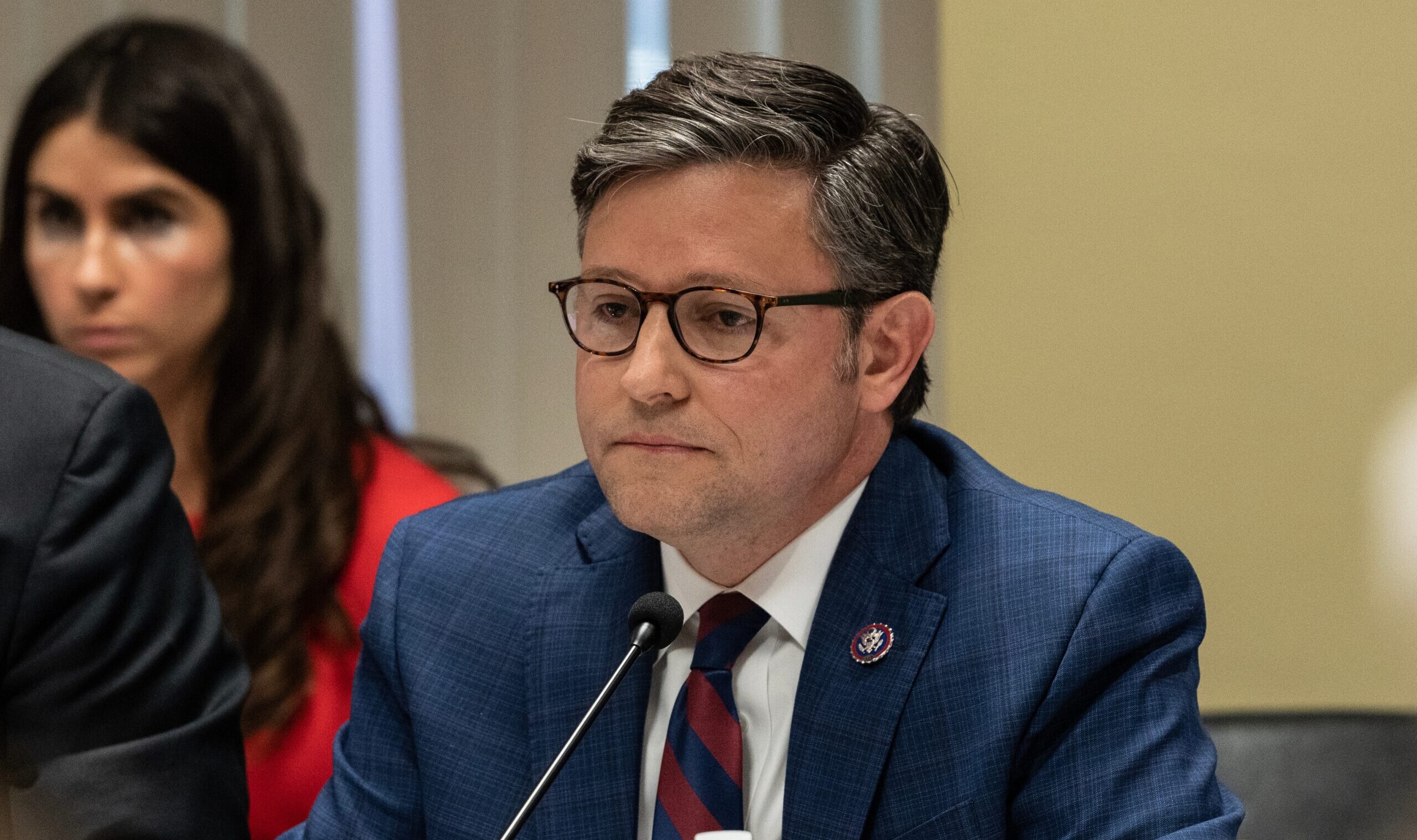Another Round of Congressional GOP Infighting Begins
The Memorial Day budget reconciliation deadline is bringing internal disputes into the open.

Now less than two weeks away, the Memorial Day recess hangs over House Speaker Mike Johnson like an anvil.
The holiday recess is just the latest deadline set by Johnson to bring the House’s budget reconciliation mega-bill to the floor—and the biggest fights still lie ahead. Maybe it was Golden-Age endorphins that caused Johnson to say in January that the House could finish its reconciliation work by late April. By February, that deadline was pushed to early May.
The last time I covered budget reconciliation for this magazine, I wrote, “It’s something of a miracle Congress is even this far along in the process.” And that was before seven of the 11 House committees that received instructions from the budget resolution passed their respective pieces of the megabill out of committee.
Until this week, GOP infighting has been largely contained to what President Donald Trump might call “concepts of a plan.” Moderates have been tweaking about increasing SALT deductions, cutting Medicaid, and protecting Biden green energy subsidies. In one lawmaker’s words to me, there’s a lot of “have their cake and eat it too” happening on Capitol Hill.
But things change when pen gets put to paper. Take what happened with the House Transportation Committee markup, the biggest public contretemps over a concrete policy proposal in the budget reconciliation process thus far.
Chairman Sam Graves (R-MO) had to pull a provision that would have placed a universal $20 fee on gas-powered passenger vehicles. Graves’s intent was to lay the foundation for getting rid of the federal gasoline tax in the future, but that did not sit well with some of his Republican colleagues.
“Like, are you out of your fricking mind?” Rep. Chip Roy, (R-TX) said of the fee. “Like, the party of limited government is gonna go out and, ‘Say we’re gonna have [a car tax]?’” Rep. Eric Burlison (R-MO), a member of the Transportation Committee, said he was a “no” on the proposal.
In the end, the committee scrapped the $20 fee and proposed increasing the EV fee to $250.
But that’s small potatoes to the upcoming fights that will likely define this legislation. The Energy and Commerce and Ways and Means Committees are scheduled to hold markups next week, following a delay. These sessions are expected to be the most pivotal in the budget reconciliation process.
Energy and Commerce has been instructed to find $880 billion in cuts over the 10-year window. Meanwhile, Ways and Means have been given a $4.5 trillion leash for tax cuts. Despite the delay, both committees have added meetings throughout the week to iron out their plans. Ways and Means, for example, met Tuesday, Wednesday, and Thursday to discuss the tax portion of the GOP mega-bill.
Nevertheless, the path to the summit of the mountain gets narrower at the top.
For the past few weeks, moderates have tried applying as much pressure on House leadership as possible to limit Medicaid reforms via budget reconciliation. Johnson has let the process unfold and let the committee do its work, but it has cost him messaging consistency. The speaker has been caught wavering on what reforms Republicans are considering to achieve $880 billion in cuts. Changes to FMAP (the rate by which the federal government reimburses states for Medicaid services)? Yes, then maybe, now no. Per-capita spending limits? Who knows!
Johnson is becoming slightly more assertive now, however. On Tuesday evening, Johnson met with GOP moderates and told reporters the two biggest Medicaid reforms, FMAP changes and per-capita caps, are likely off the table. “I think we’re ruling [per capita caps] out as well but stay tuned,” Johnson told reporters. Yet, one unnamed Republican at the meeting told POLITICO that Johnson suggested the $880 billion in cuts was “aspirational.”
Moderates are offering a three-part proposal for Medicaid reform: additional work requirements for able-bodied adults, more frequent eligibility checks, and eliminating any benefits for illegal immigrants. “We’re coming up with options — we’re discussing them, hashing through them, debating them,” Rep. Nicole Malliotakis (R-NY), one of the House GOP moderates, said after the meeting. “They’ll come back with a revision.”
But those savings would only get Republicans half way there, and ruling out FMAP and per-capita caps take large amounts of potential savings off the table.
Conservatives did not take the news well. “So – the GOP leadership position is to defend OBAMACARE policies,” Roy wrote in an antagonistic post on X.
The House Freedom Caucus also took to X:
It’s one thing to ask for lower Medicaid savings while compromising on the SALT deduction, but moderates are going for it all. Moderates are demanding a substantial increase to the SALT deduction, among other SALT adjustments that will negatively impact the deficit. And, despite having a substantial caucus devoted to SALT, they haven’t yet brought a number to the table. Some of the disagreements in the moderate camp are downright comical, such as whether or not to include second homes or place an income cap on SALT. (Ah, yes, the party of the multi-ethnic working class at work.)
Meanwhile, conservatives are fighting back. In a new letter to Johnson and House Majority Leader Steve Scalise (R-LA), thirty-two House Republicans wrote that “under the House’s framework, the reconciliation bill must not add to the deficit.”
“The House reconciliation instructions are binding. They set a floor for savings, not a ceiling. We must hold that line on fiscal discipline to put the country back on a sustainable path,” the lawmakers added. “We are more committed than ever to making that happen.”
But this is all just the sound of sharpening knives. They’ll come out for real next week if things stay on track. Which is no guarantee. Rep. Buddy Carter of Georgia, chairman of the House Energy and Commerce health subcommittee, said Republicans will be “hard pressed” to meet Johnson’s Memorial Day deadline.
The post Another Round of Congressional GOP Infighting Begins appeared first on The American Conservative.

